Last November I was inspired by an article I read to try my hand at growing some African Violets. Over the years I’ve tried to grow these lovely plants but I had never been successful. Every plant I tried to grow eventually died a slow withering death. So several years ago I gave up. I swore them off forever.
But the article inspired me to try again. The author made it sound so easy. I went to a couple of local stores to buy a few African Violets, but none of the stores had them. So I went online and ordered a sample pack of 12 different African Violet leaves from a grower on Etsy. When the sample pack arrived I planted each leaf in a plastic dixie cup, placed the whole bunch of planted leaves in two small plastic tubs and set them on my kitchen counter under the under-counter fluorescent light. (You’ll see 20 leaves in the photos below because the seller sent me a few duplicates).
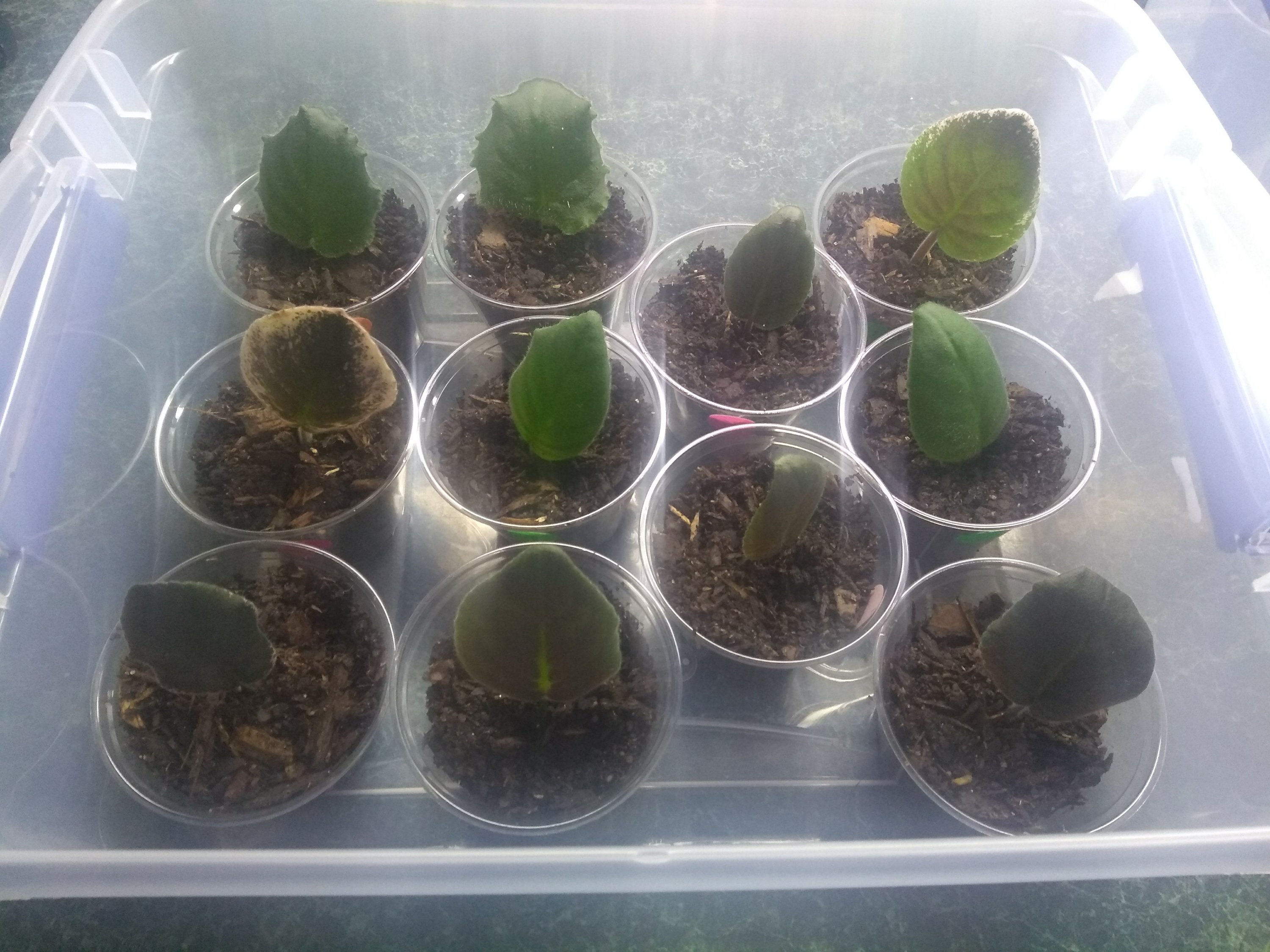
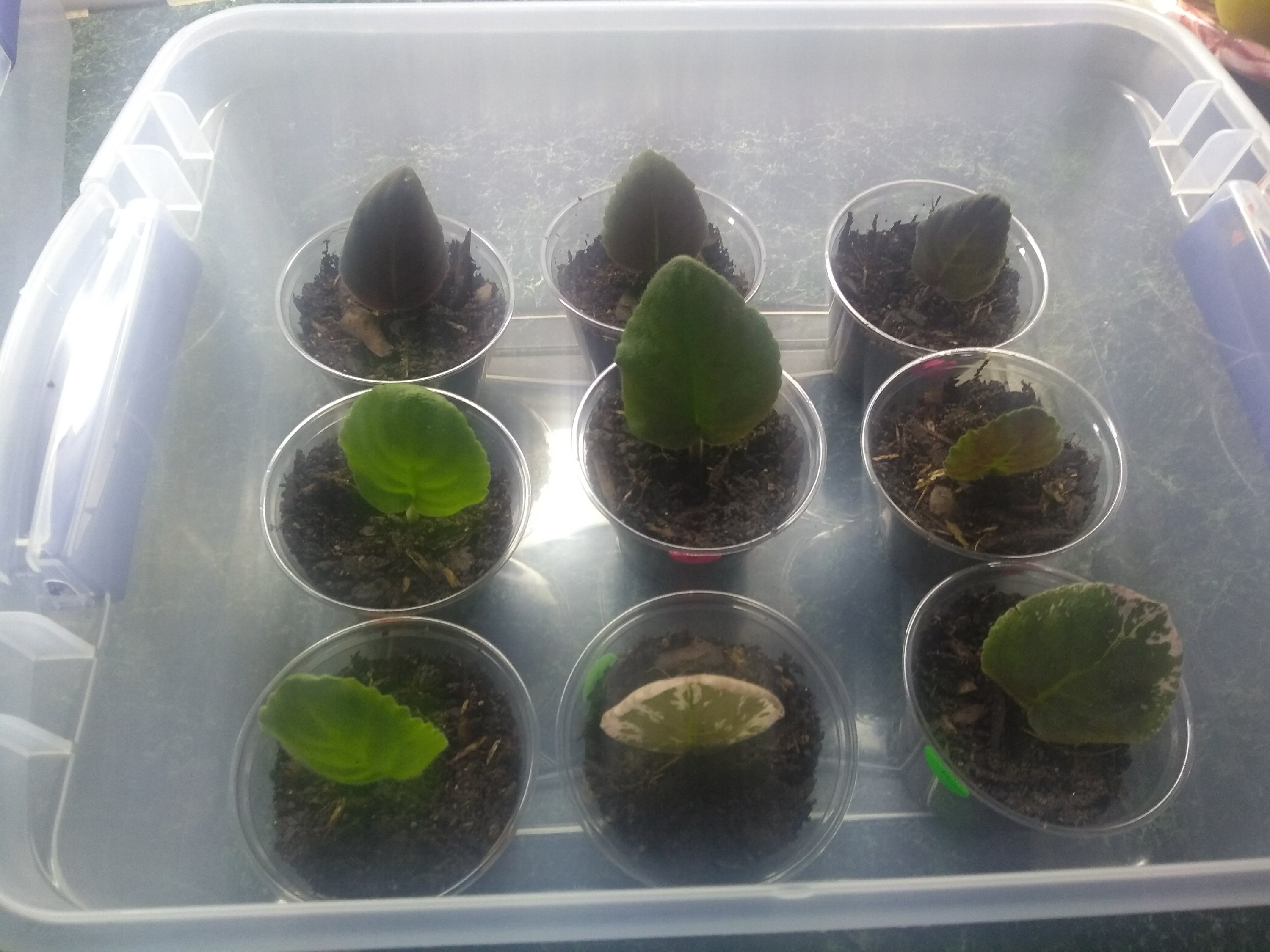
I watered them well and snapped the lids on the tubs. The tubs provided a nice, moist terrarium-like environment for the plants and because both the tub and the lid are translucent, the plants got plenty of light.
I left the fluorescent light on 24/7 and every couple of weeks I opened up the tubs to check the progress. For the first couple of months I didn’t see much of anything and so was skeptical that my effort would be successful.
Then, around the middle of March I saw some babies emerging from the soil around a few of the leaves.
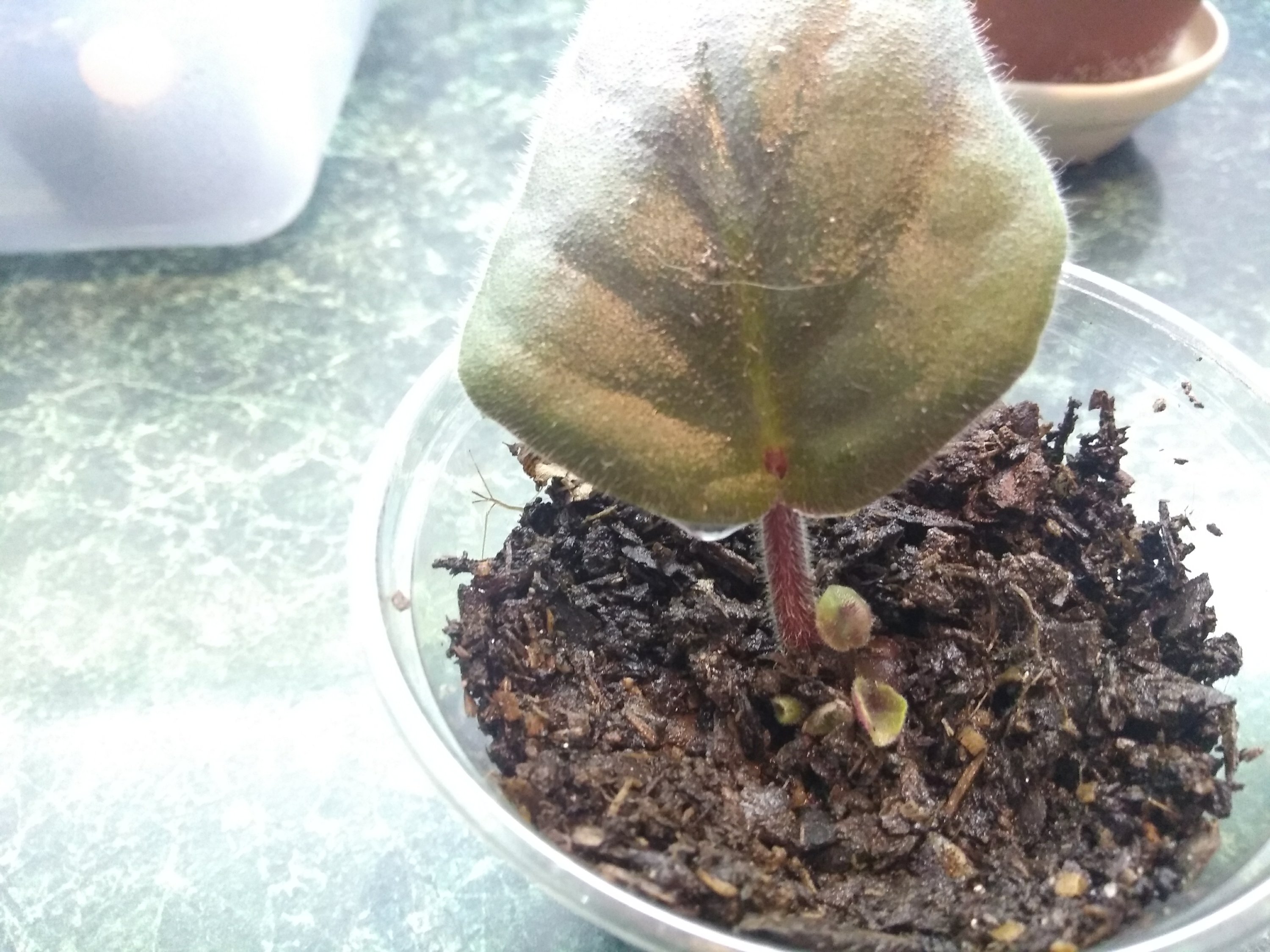
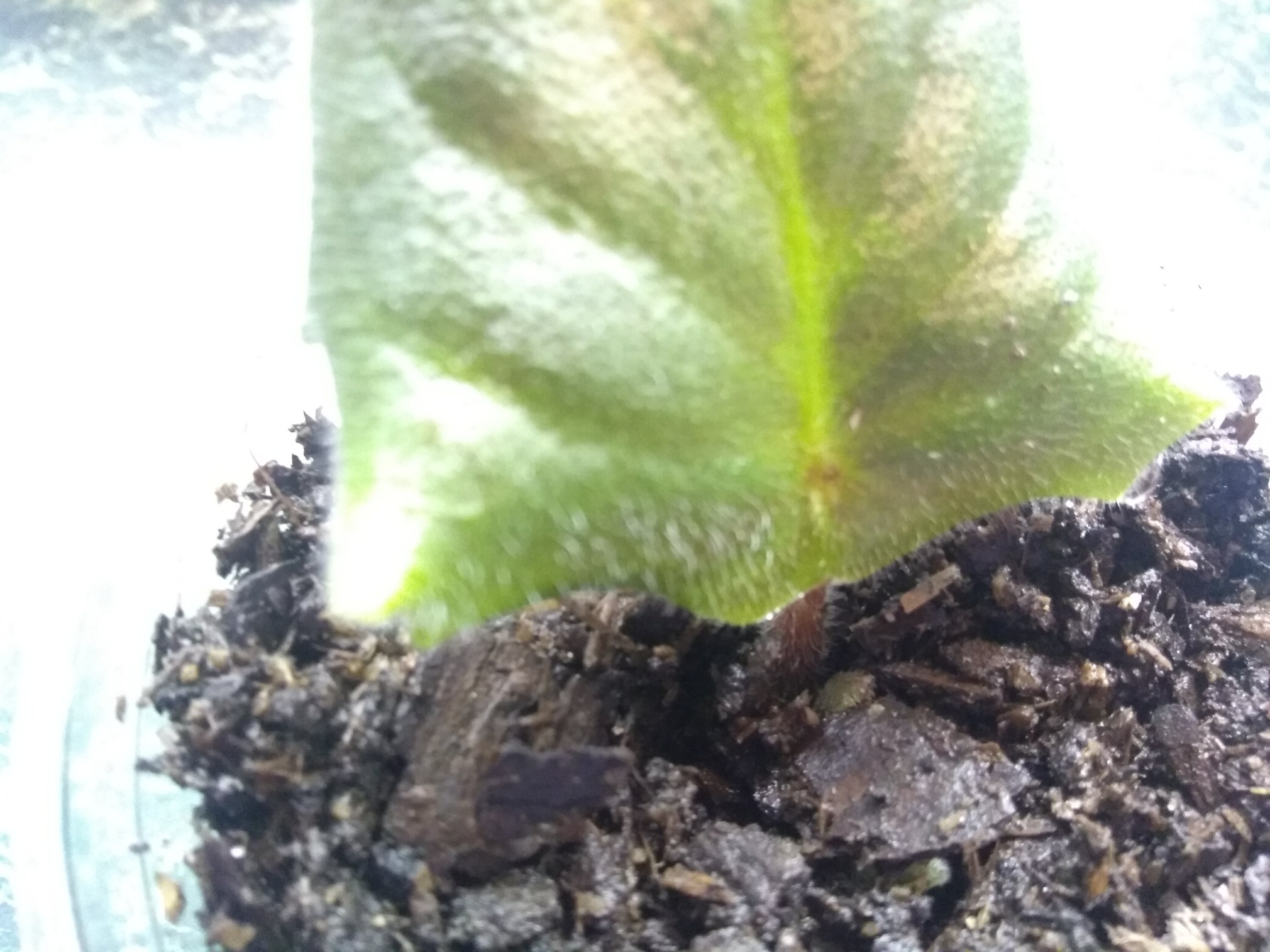
A few weeks later, there were more babies and even a bloom!
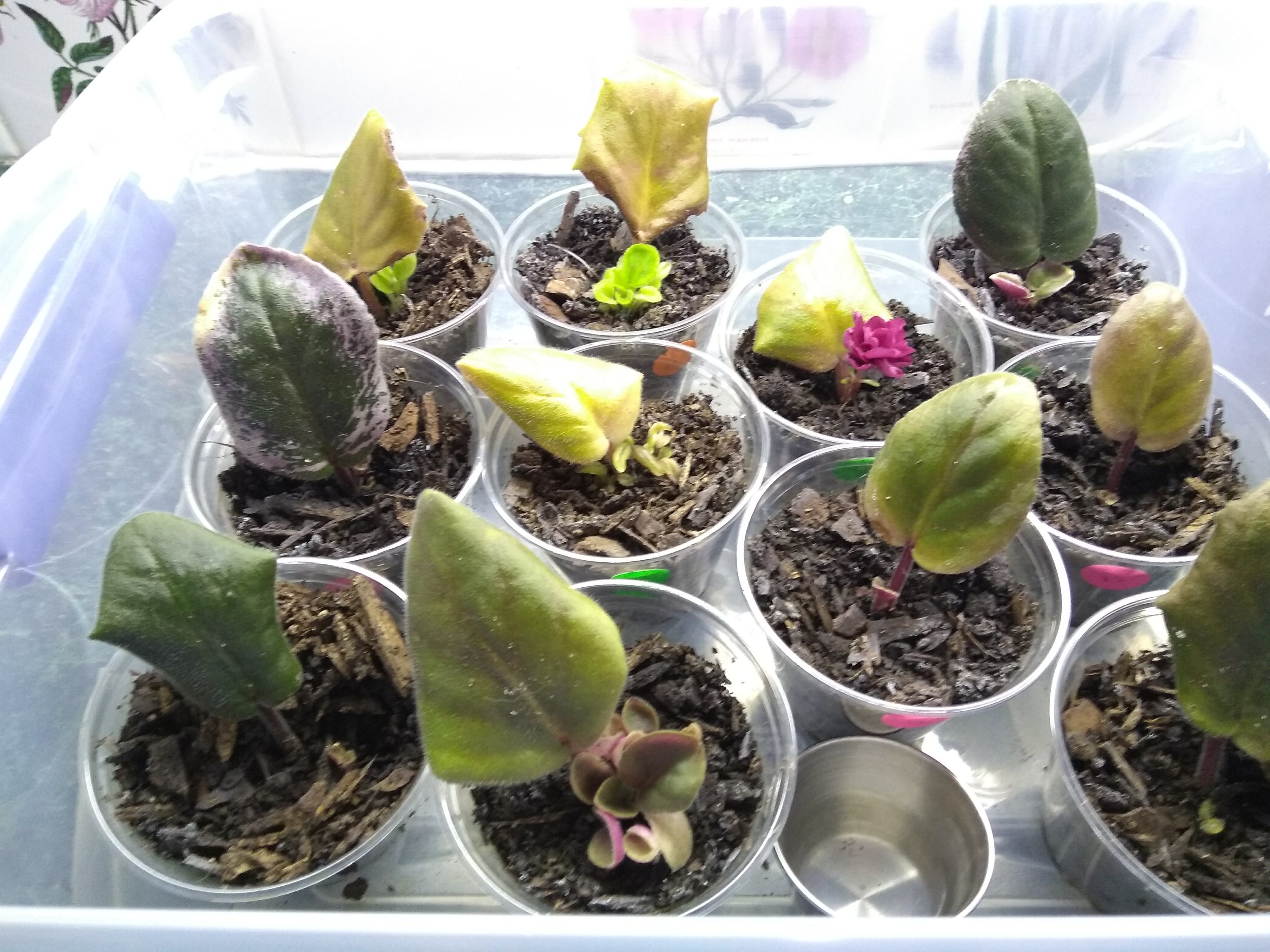
By mid-April all the leaves had sprouted babies. After several weeks I transplanted most of the babies into one inch pots. Many leaves yielded more than one plant.
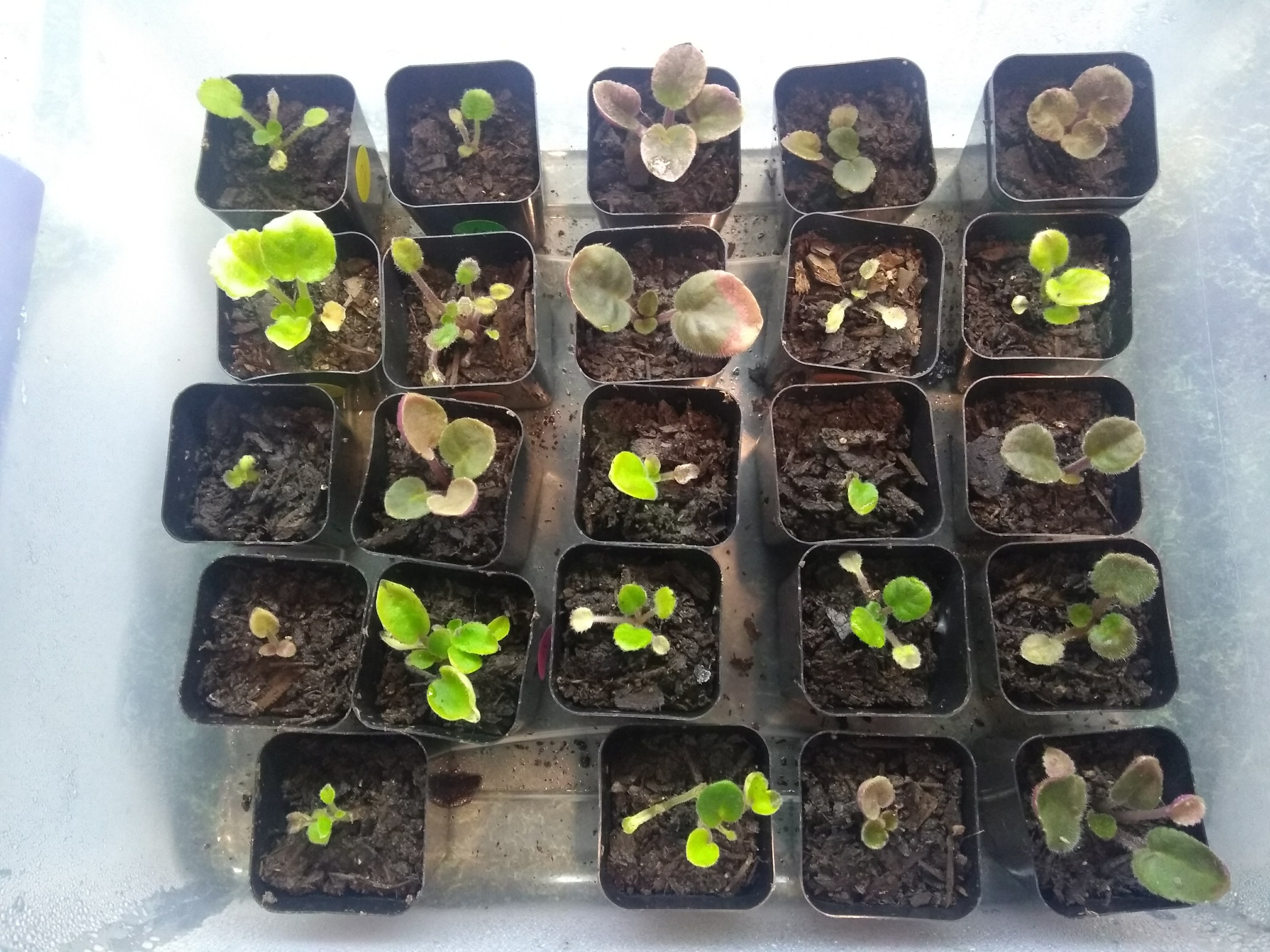
In June they were all growing and flourishing (I only lost one baby plant).
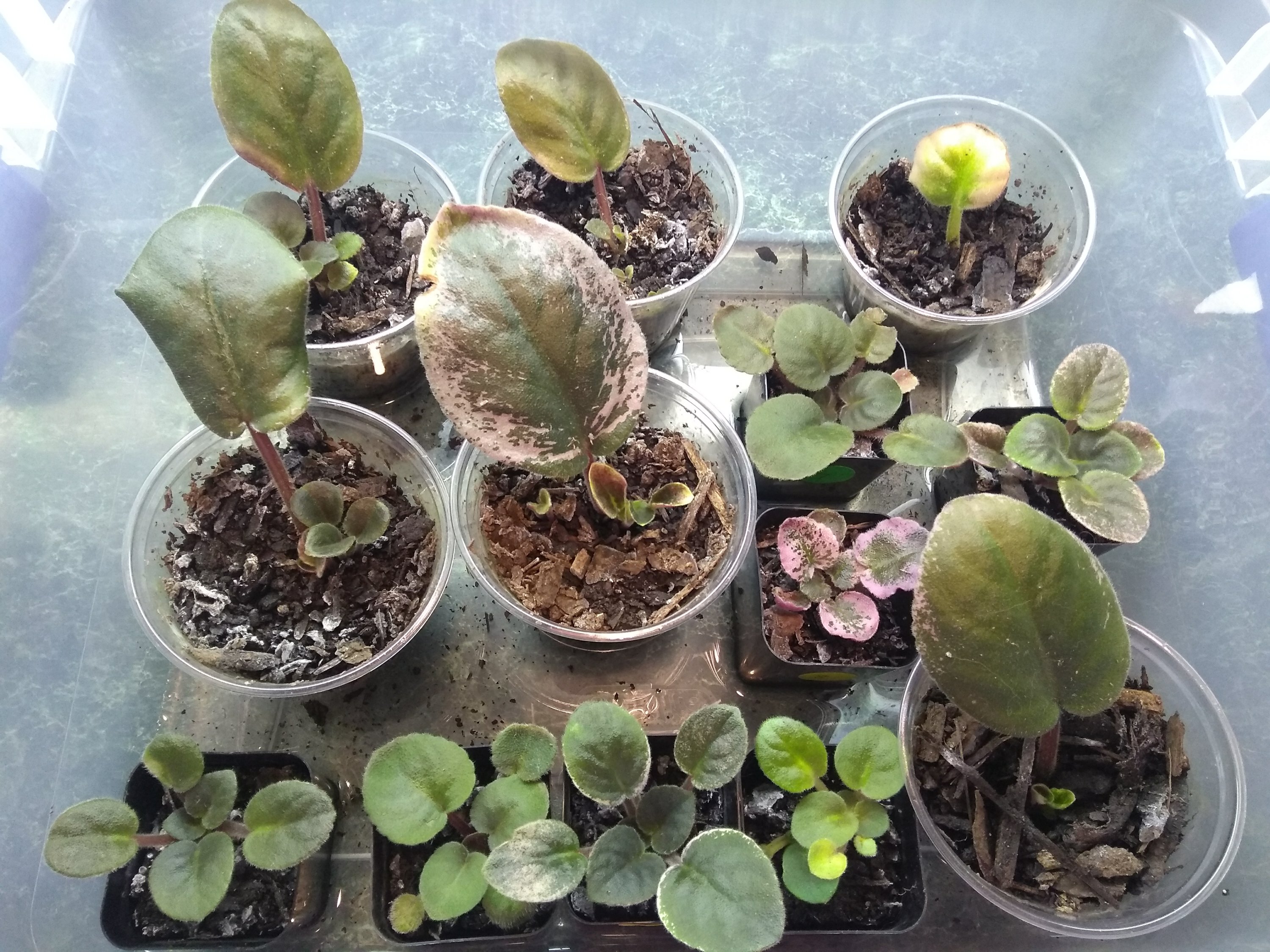
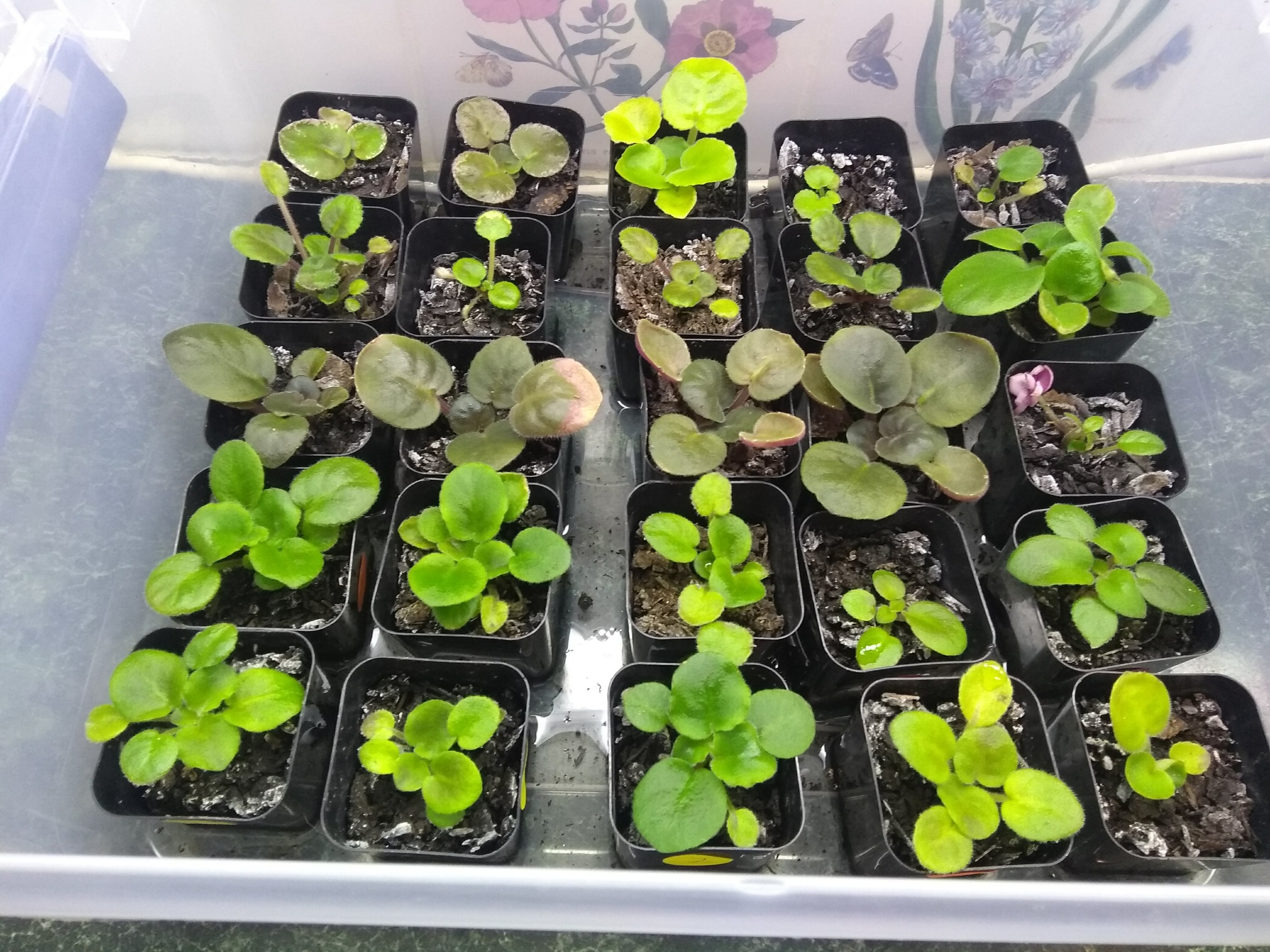
A few weeks ago I repotted the larger plants into larger pots (the picture below shows less than half of my plants).
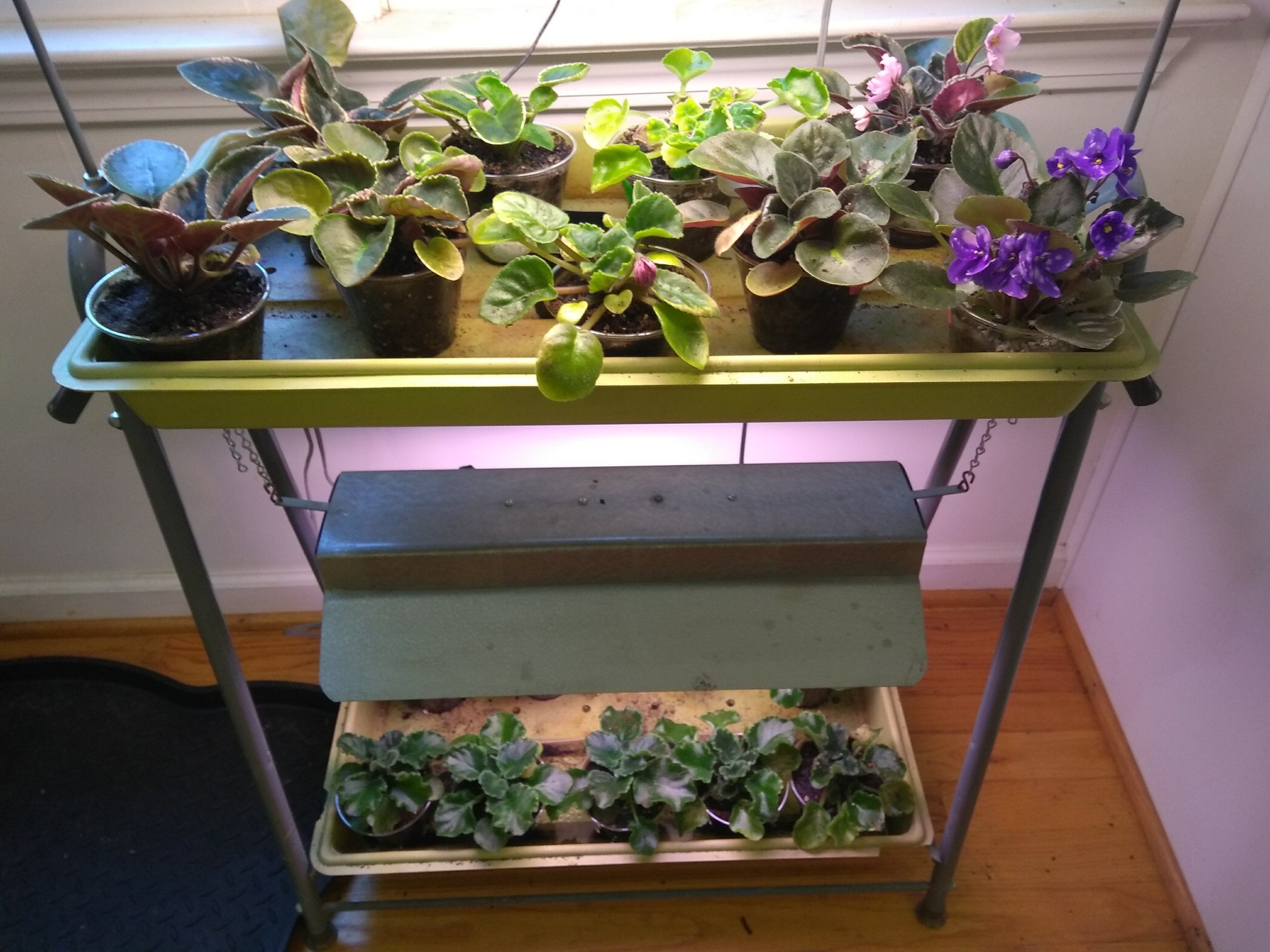
You can see that some of the plants have started blooming and more buds are popping up every day. I’ve now got over 40 African Violets and three of the original leaves are still in dixie cups perhaps producing more baby plants.